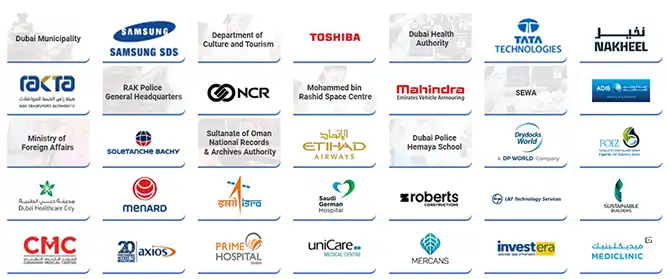ISO Certification in Ethiopia
ISO certification in Ethiopia plays a crucial role in enhancing the quality and productivity of businesses operating in the country. The International Organization for Standardization (ISO) sets internationally recognized standards that ensure products, services, and processes meet the required quality benchmarks. Obtaining ISO certification demonstrates a company's commitment to delivering high-quality products and services, improving customer satisfaction, and complying with industry regulations. In Ethiopia, ISO certification is gaining popularity among businesses, as it helps them showcase their adherence to global quality standards and gain a competitive edge in the market. Moreover, ISO certification also enables businesses to expand their operations globally by meeting the requirements of international clients and establishing trust in their capabilities. Overall, ISO certification is not only a mark of credibility and excellence but also a strategic tool for business growth and development.
Why select us for ISO Certification in Ethiopia?
Selecting us for ISO Certification is a wise decision due to several reasons. Firstly, we have a proven track record of successfully guiding organizations through the ISO certification process. Our team of experts is highly knowledgeable and experienced in implementing ISO standards and ensuring compliance. Secondly, we understand the specific challenges and requirements of organizations operating in Ethiopia, making us well-equipped to provide tailored solutions. Furthermore, our certification process is efficient and streamlined, minimizing disruptions to your business operations. Additionally, we offer continuous support and guidance even after certification, ensuring that your organization maintains compliance. Lastly, our reputation for providing quality services and our commitment to customer satisfaction make us stand out among other certification bodies in Ethiopia.
Process of ISO Certification in Ethiopia:
The process of ISO Certification typically involves many steps. Here is a general overview of the ISO process:

Benefits of ISO Certification in Ethiopia
ISO Certification offers several benefits to organizations. Some of the key advantages include:
- Enhancing credibility and reputation,
- Improving quality and customer satisfaction,
- Expanding market opportunities,
- Boosting operational efficiency,
- Complying with regulatory requirements,
- Strengthening Risk management capabilities,
- Increasing employee engagement and motivation,
- Reducing costs.
When obtaining ISO certification, it's essential to carefully consider the potential benefits based on the selected standard and the organization's context and business sector. Benefits may vary significantly in accordance with these factors.
Requirements to get ISO Certification in Ethiopia
To obtain ISO Certification, organizations need to fulfil specific requirements. Here are some key points to consider:
- Select the pertinent ISO Standard
- Establish a Management System
- Detailed Information
- Perform internal audits
- Remedial Measures
- Review of Management
- Choose a Certification Body with Accreditation
It's important to note that the specific requirements and processes may vary depending on the chosen ISO standard and the certification body involved.
FAQ for ISO Certification in Ethiopia
1. How could I get an ISO Certification in Ethiopia?
ISO Certification can benefit businesses in Ethiopia. It involves selecting a standard, developing policies, conducting audits, getting reviewed by a third-party agency, and participating in periodic assessments to maintain certification.
2. What is the role of a certification body in the ISO certification process?
The certification audit is carried out by a certification body, which evaluates the quality management system of your organization. If your organization meets the necessary requirements, the certification body will issue the ISO certification.
3. How to Apply for ISO Certification in Ethiopia?
Organizations in Ethiopia can greatly benefit from obtaining ISO Certification, which ensures adherence to international standards. This certification process leads to enhanced quality management systems and operational efficiency. To begin this process, businesses need to reach out to an approved and accredited service provider within the country. In Ethiopia, certified service providers can be found at the following locations:
Email: admin@gabrielregistrar.com
Phone: +971-56-5773585
4. Who Needs ISO Certification in Ethiopia?
ISO certification can benefit organizations across various industries in Ethiopia. For manufacturing, ISO 9001 is applicable, while service providers can consider ISO 9001 or ISO 20000. Construction companies can strive for ISO 9001 certification, and those in the food industry may pursue ISO 22000. Information security can be ensured through ISO 27001, environmental sustainability through ISO 14001, and employee safety and well-being through ISO 45001. These certifications demonstrate a commitment to quality, integrity, and professionalism in respective fields.
5. What is the validity of the ISO Certification?
ISO certifications in Ethiopia, like in many other countries, are valid for a period of three years. To maintain certification, organizations must consistently adhere to ISO standards and strive for continuous process improvement. Certification bodies conduct surveillance audits to assess ongoing compliance and renew the organization's certification at the end of each three-year cycle. The recertification process involves evaluating the organization's Quality Management System (QMS) and verifying its adherence to ISO standards.
6. What is the validity of the ISO 9001 (QMS) Certification in Ethiopia?
ISO certifications in Ethiopia, like in many other countries, are valid for three years. Organizations must remain compliant with ISO standards and continuously enhance their processes to ensure continued certification. Certification bodies conduct surveillance audits to assess ongoing compliance and recertify the organization at the end of the three-year cycle. The organization's Quality Management System (QMS) is evaluated during the recertification process to verify its adherence to ISO standards.
7. What is the cost of ISO Certification in Ethiopia?
The Cost of ISO Certification depends on several factors, including the organization's size and complexity, the specific ISO standard chosen, and the certification body selected. Additional services may also impact the overall cost.
8. How do I start the ISO certification process in Ethiopia?
To begin the certification process in Ethiopia, it is recommended that you first choose a reputable certification body, also known as a registrar or certification agency. This organization will provide valuable guidance and support throughout your certification journey.
9. Why should my business in Ethiopia consider ISO Certification?
Obtaining ISO certification showcases your dedication to maintaining high standards of quality and ensuring customer satisfaction. It not only enhances your credibility but also expands your potential for new business ventures. Additionally, ISO certification is often a prerequisite for securing government contracts.
10. Can small businesses in Ethiopia obtain ISO 9001 (QMS) Quality Management certification?
Yes, ISO 9001 Quality Management System (QMS) certification is available to companies of all sizes. Small enterprises can take advantage of standards specifically tailored to fulfil their unique requirements.


